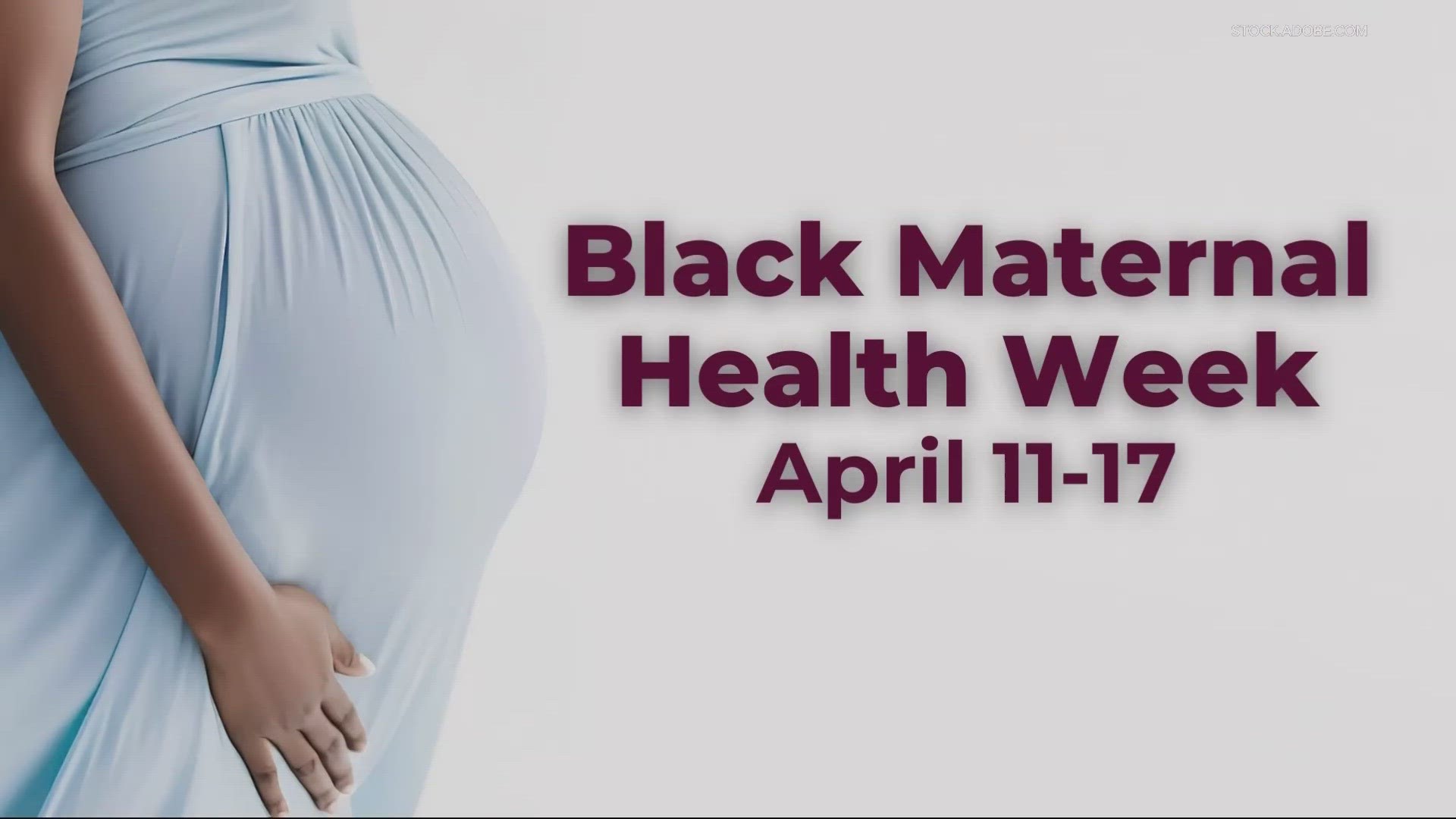OREGON, USA — April 11 - 17 is Black Maternal Health Week. It is meant to bring much-needed attention and action to the racial disparities that exist within our healthcare system.
“We really need to shine a light on the significant disparities in outcomes that are happening in the U.S. between Black moms and white moms,” OBGYN and Regence Executive Medical Director Dr. Nicole Saint Clair said.
Black Maternal Health Week was started in 2019 by a group called the Black Mamas Matter Alliance and it’s now recognized by the U.S. government.
“I think we've been recognizing and talking about the presence of these healthcare disparities for quite a while. So now it's time to move from acknowledging that they exist to just working really hard and diligently on the solution,” Dr. Saint Clair said. “And that begins with just awareness and sounding the alarm.”
The U.S. had one of the worst rates of maternal mortality in the country’s history in 2021, according to a recent report from the Centers for Disease Control and Prevention. 1,205 people died of maternal causes in the U.S. in 2021, a 40% increase from the year before.
In the same year, the rate of maternal deaths in the U.S. was nearly 33 (32.9) per 100,000 live births. That’s dramatically higher than many other high-income countries.
The disparities are stark in terms of the maternal death rate by race.
For white women, the rate is 26.6 deaths per 100,000 live births. That number shoots up to nearly 70, 69.9 maternal deaths per 100,000 live births.
“This is a big deal, but this problem continues year over year and we're not moving quick enough and changing the numbers fast enough,” Dr. Saint Clair said.
The reason for the disparities is multifaceted and much of it comes down to social factors.
“At baseline, as humans, our bodies are all fundamentally the same, so we shouldn't think that there's anything about Black women that would predispose them to these types of outcomes,” she said.
“But through the variety of different factors through life society, we do see that this higher rate of hypertension and certain other conditions can translate to more pregnancy complications.”
Poor health outcomes tend to fall disproportionately on those with fewer resources and less income.
“For a variety of different reasons within our social structure, we see that Black women tend to be more disproportionately represented in groups that are struggling with lower income groups that are having kind of food and housing and security and also reduce access to high-quality healthcare,” Dr. Saint Clair said.
There are systemic socioeconomic issues and systemic issues, including racial bias, within the healthcare system, according to Dr. Saint Clair.
“Unconscious biases can creep in and affect the way that we deliver care or affect the way that we allot resources,” she said. “We also know that there is a communication disconnect and we see that oftentimes when Black women are having a health issue or a concern, there can be a disconnect from the healthcare team of hearing and recognizing and responding to that concern in a timely fashion. That can lead that only to misdiagnosis or delayed care and then potential complications.”
While she says changes need to come from the top to fully address disparities for Black moms, she says there are things expecting mothers can do to empower their own health.
“This is not the type of a stat or a situation that we can really take lying down or talk about it without moving any act,” she said.
Dr. Saint Clair encourages moms-to-be to empower themselves with knowledge and know their health status.
Two key things: Know your blood pressure and get screened for diabetes. Both factors can significantly impact a pregnancy.
She also stresses the importance of advocacy and reminds patients to talk to their doctors, get a second opinion and be direct.
She recommends relying on friends and family for support. Advocacy can also come through a doula.
“Healthcare doula is in essence, like a labor advocate and support person who's not only providing support for the mom and labor but also communicating the needs with the medical team can serve as a liaison to help with that and really bring awareness to concerns that you may have that are not being appropriately addressed,” Dr. Saint Clair said.
Learn more about Black Maternal Health Month at www.blackmamasmatter.org

